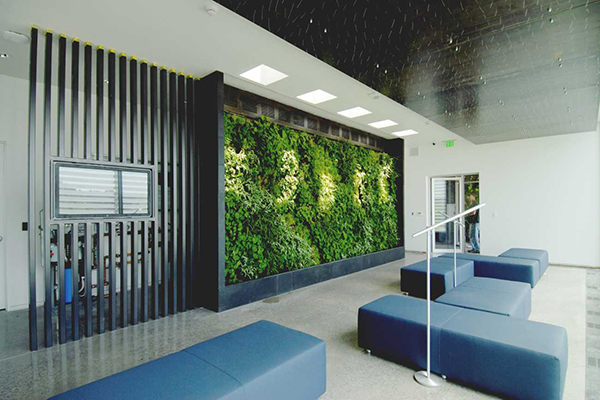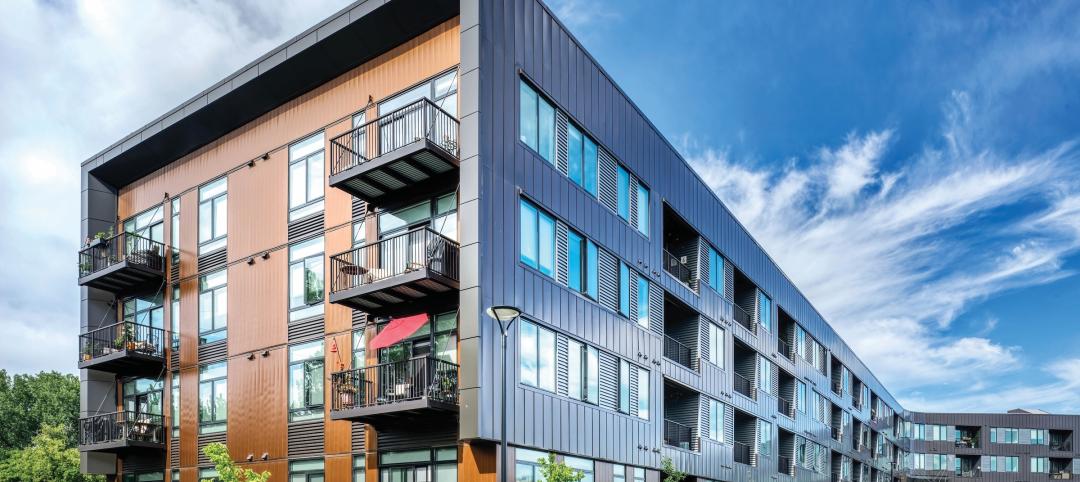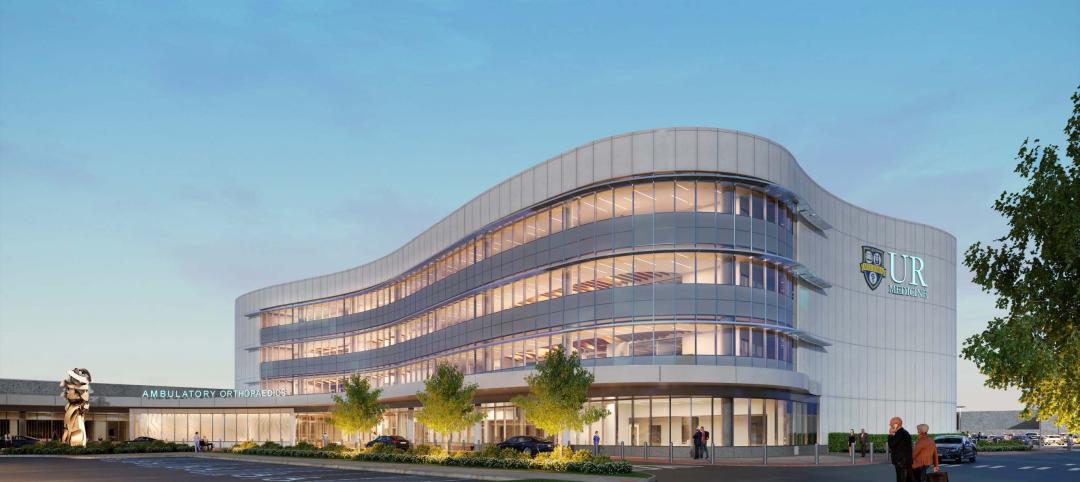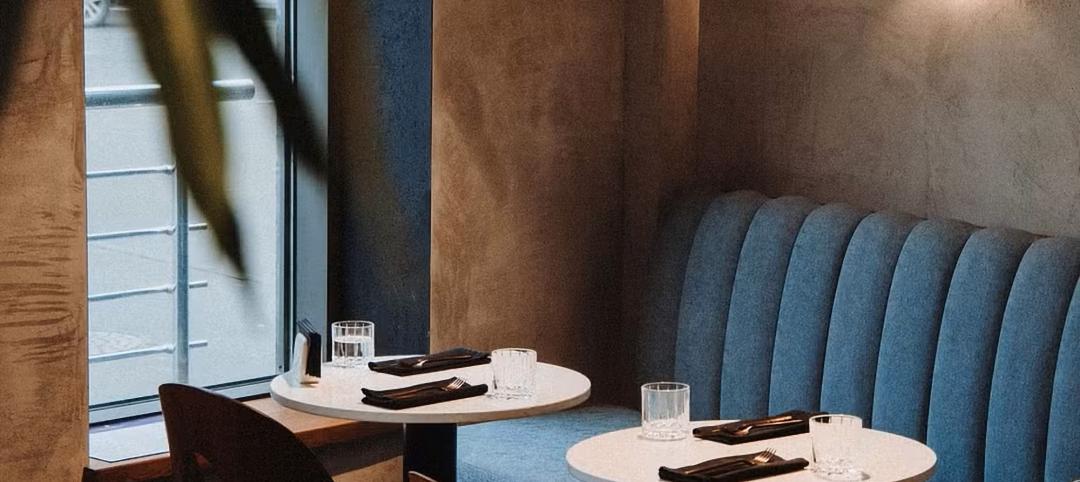The Center for Sustainability at Johnson County Community College (JCCC), Overland Park, Kansas, set aggressive goals for the College, including becoming a 100% renewable energy campus by 2050. This commitment affected every building project on campus, including Galileo’s Pavilion, a 3,000-square-foot academic building. Super-efficient practices and products, including Mitsubishi Electric Cooling & Heating Variable Refrigerant Flow (VRF) technology, have made Galileo’s Pavilion a true showcase of sustainability and earned LEED® Platinum certification.
The JCCC contacted Studio 804, a not-for-profit in Lawrence, Kansas, comprised of KU School of Architecture, Design and Planning graduate students. These students design and construct technologically sophisticated, green buildings under the direction of Dan Rockhill, distinguished architecture professor and Studio 804 founder. Rockhill said, “We designed Galileo’s Pavilion using our current knowledge of sustainable design. We took advantage of the daily and seasonal cycles of nature to passively cool, heat and daylight the building, as well as supply electricity and utility water.”
For HVAC, Rockhill said, “We had three distinctly separate spaces. Although they’re in the same building, the loading on them is different. So that resulted in three separate air-conditioning and heating solutions” – or, zoning. “We pride ourselves on promoting sustainable everything, so HVAC is no exception.” VRF was the clear choice.
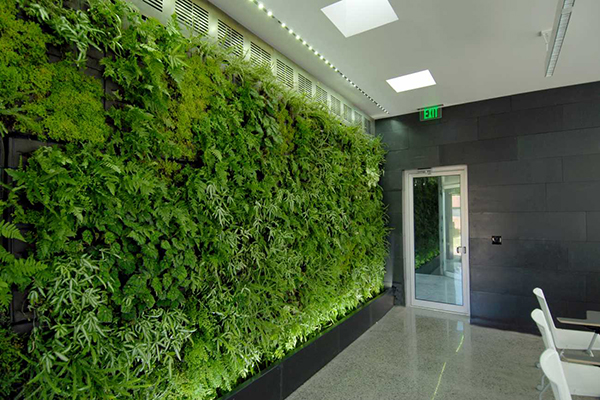
Rockhill had been impressed with Mitsubishi Electric VRF on a recent project. “Mitsubishi [Electric] is a leader in its field. Many of the others follow, but Mitsubishi [Electric] developed the variable refrigerant concept. For Galileo’s Pavilion, we wanted the most technologically advanced equipment in the industry. So VRF and its capacity to simultaneously cool and heat all of the spaces within the building was a fit.”
He continued, “Mitsubishi [Electric] was also very generous in working on the engineering aspect of the Center for Design Research. Mitsubishi [Electric] gets passive solar, and gets that it’s the sum of the total of all the parts that makes the systems positive. And there was never any pushback from them. It was always, “Yeah, that’s great.”
“Installation went quite well. The Mitsubishi [Electric] units are compact and easy enough to install that the whole thing really was pretty simple,” said Rockhill.
“The school monitors the whole thing,” explained Michael Rea, JCCC’s sustainability project manager, “through our building automation system. The Mitsubishi [Electric] system is integrated so we can see humidity or change set points, for example.”
He continued, “Everything with the Mitsubishi [Electric] system has been going well. No compressor failures, no leaks, no fan problems, nothing. Our maintenance is easy, too – just changing the filters and making sure the condensers are clean.”
Another sign of success: LEED Platinum certification. Rea said, “For us in the Center, we were excited to get above Silver, our current standard. Galileo’s Pavilion is a showcase about what a sustainable building can be on a campus. We were also honored to receive the 2013 CSI Kansas City Chapter Innovation in Sustainability Award for the building.”
Related Stories
Sponsored | MFPRO+ Course | Oct 30, 2023
For the Multifamily Sector, Product Innovations Boost Design and Construction Success
This course covers emerging trends in exterior design and products/systems selection in the low- and mid-rise market-rate and luxury multifamily rental market. Topics include facade design, cladding material trends, fenestration trends/innovations, indoor/outdoor connection, and rooftop spaces.
Resiliency | Oct 19, 2023
Jacksonville unveils 50-year strategy for resiliency to flooding, extreme heat, wildfires
The City of Jacksonville, Fla., recently released plans for Resilient Jacksonville, a 50-year resiliency strategy to reduce the risks from flooding, hurricanes, excessive heat, and wildfires, and to respond better to those events. The plan includes ways to stop the St. Johns River from flooding vulnerable neighborhoods, including those prone to flooding during heavy rain or hurricanes.
Adaptive Reuse | Sep 19, 2023
Transforming shopping malls into 21st century neighborhoods
As we reimagine the antiquated shopping mall, Marc Asnis, AICP, Associate, Perkins&Will, details four first steps to consider.
Hotel Facilities | Sep 15, 2023
The next phase of sustainability in luxury hotels
The luxury hotel market has seen an increase in green-minded guests looking for opportunities to support businesses that are conscientious of the environment.
Resiliency | Sep 11, 2023
FEMA names first communities for targeted assistance on hazards resilience
FEMA recently unveiled the initial designation of 483 census tracts that will be eligible for increased federal support to boost resilience to natural hazards and extreme weather. The action was the result of bipartisan legislation, the Community Disaster Resilience Zones Act of 2022. The law aims to help localities most at risk from the impacts of climate change to build resilience to natural hazards.
Metals | Sep 11, 2023
Best practices guide for air leakage testing for metal building systems released
The Metal Building Manufacturers Association (MBMA) released a new guidebook, Metal Building Systems - Best Practices to Comply with Whole-Building Air Leakage Testing Requirements.
Office Buildings | Aug 31, 2023
About 11% of U.S. office buildings could be suitable for green office-to-residential conversions
A National Bureau of Economic Research working paper from researchers at New York University and Columbia Business School indicates that about 11% of U.S. office buildings may be suitable for conversion to green multifamily properties.
Multifamily Housing | Aug 23, 2023
Constructing multifamily housing buildings to Passive House standards can be done at cost parity
All-electric multi-family Passive House projects can be built at the same cost or close to the same cost as conventionally designed buildings, according to a report by the Passive House Network. The report included a survey of 45 multi-family Passive House buildings in New York and Massachusetts in recent years.
Regulations | Aug 23, 2023
Gas industry drops legal challenge to heat pump requirement in Washington building code
Gas and construction industry groups recently moved to dismiss a lawsuit they had filed to block new Washington state building codes that require heat pumps in new residential and commercial construction. The lawsuit contended that the codes harm the industry groups’ business, interfere with consumer energy choice, and don’t comply with federal law.
Sustainability | Aug 15, 2023
Carbon management platform offers free carbon emissions assessment for NYC buildings
nZero, developer of a real-time carbon accounting and management platform, is offering free carbon emissions assessments for buildings in New York City. The offer is intended to help building owners prepare for the city’s upcoming Local Law 97 reporting requirements and compliance. This law will soon assess monetary fines for buildings with emissions that are in non-compliance.


